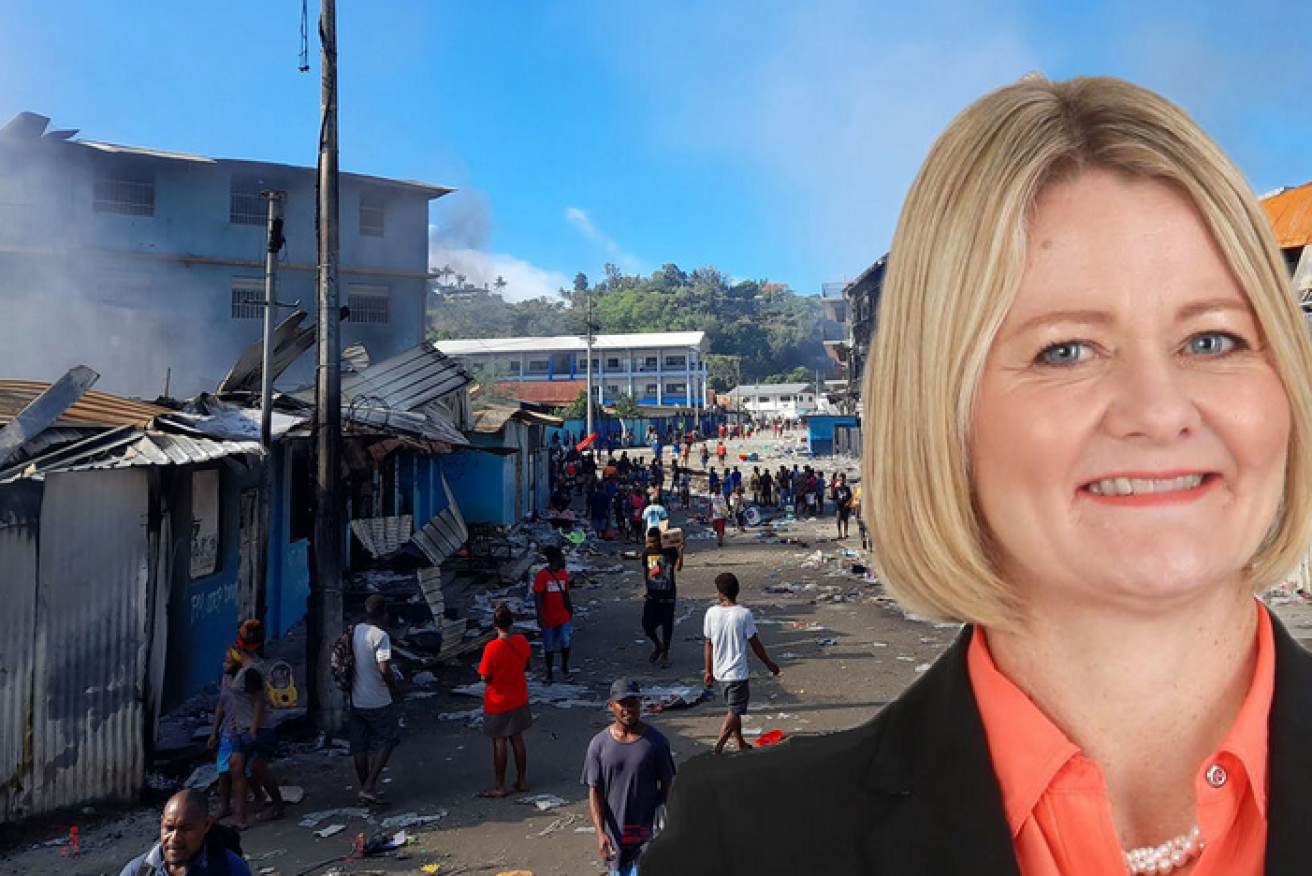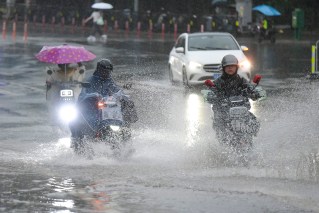The one-word reason the PM won’t name for sending troops to Honiara: ‘China’


China is only one factor amid the Cook Islands' rioting and chaos. Photo: TND
Prime Minister Scott Morrison says the whole point of sending a small peacekeeping force to the Solomon Islands is to provide stability and security. They are not there to intervene in any way, he says, in the Pacific nation’s domestic politics.
Those peacekeepers – 73 Australian Federal Police and 43 Australian Defence Force personnel – have begun arriving on the island nation, about 1500km northeast of Australia.
But, like everything in politics, it’s what is left unsaid that is most interesting.
Solomon Islands Prime Minister Manasseh Sogavare says the current crisis and unrest engulfing the islands is “influenced and encouraged by other powers”. He is referring, of course, to the China situation, and he said as much: countries which don’t like his country’s Belt and Road ties with Beijing were behind the current crisis.
But we haven’t heard the name of that nation uttered by our own Prime Minister as to the motivations for so quickly responding to the Solomon Island PM’s request for assistance. The request came after several days of rioting in the capital of Honiara which saw protestors descend on the national parliament building and call for the prime minister’s resignation.
Several buildings were set on fire, including one within the parliament complex, and there were reports of Chinatown being targeted. The Government declared a lockdown on Wednesday, which was set to end on Friday night.
There have been reports that many of the protestors who descended on the capital hailed from the main island of Malaita.
Malaita’s Premier, Daniel Suidani, has long been critical of the decision, made by Sogavare in 2019, to cut diplomatic ties with Taiwan and switch allegiance to China. Sogavare was seen to be cosying up to China, assisting to increase China’s influence in the region.
And since Sogavare switched his country’s allegiance to China, large sums of Chinese money and support have found their way there. Regional experts and analysts say, however, that it is simplistic to blame the current crisis solely on geopolitical tensions.
It has more to do, according to those with intimate knowledge of the region, with local factors, with the age-old problems of corruption, inequality, poverty and inter-island rivalries.
Cynical and corrupt
James Batley was Australia’s High Commissioner to the Solomon Islands from 1997-’99 and is now with the Australian National University’s Coral Bell School of Asia Pacific Affairs. Batley says the current unrest is not just about China but has its origins rooted in the longstanding cynicism of and about Solomon Islands politicians, plus corruption and development that benefits some parts of the country at the expense of others.
“For a very long time Solomon Islanders have been of the view that their political class has been corrupted by business interests – and a lot of those business interests are Chinese business interests,” Mr Batley says. China, he notes, is a relatively new player on the ground there.
Batley says disputes at the national and provincial level, about power-sharing and resource allocation, are longstanding and ongoing.
“It is much more about development and about concerns that some areas are benefitting more than others … and some groups, like politicians, are benefitting more than others and that angers people. The grassroots are not seeing the fruits of foreign investment.”
Batley says the grassroots also has a perception that money, allocated to members of parliament to spend in their constituencies, is allocated unfairly and only benefits political supporters. Cynicism is rife.
“I think it is wrong to say this is just about China,” Batley says, observing that Australia has long been concerned about instability on our doorstep, whether it involves a third party or not.
Head of the Pacific Islands program at the Lowy Institute, Jonathan Pryke, says the drivers of today’s conflict are the same as those which caused conflict two decades ago in the Solomon Islands: inter-island rivalry and tensions, poverty, unemployment.
“The key drivers have been under the surface all along,” Pryke says, adding that 70 per cent of the Solomon Islands’ population are under 30 and have only limited access to employment
“This is a huge vulnerability, there are lots of disaffected youth.”
Pryke says these youths end up in Honiara without work and desperate, and this breeds disaffection. Many of those rioting this week, he says, couldn’t point to Taiwan or China on a map.
‘Too simplistic’
Tess Newton Cain, adjunct associate professor at Griffith University’s Asia Institute, says it is way too simplistic to say that the problems relate solely to the switch of allegiance from Taiwan to China.
“I think it would be way too simplistic to frame it in those terms. In terms of what we have seen more recently, I think it relates to longstanding concerns of the people of Malaita and the people of Guadalcanal about how the Government has operated in general,” Ms Cain says.
Further, the provincial governments of Malaita and Guadalcanal were concerned about not having as much political and economic autonomy as they believe is their due.
She says the concerns about corruption predate the China decision: “There are longstanding issues around corruption, longstanding concerns about the lack of development beyond Honiara.”
The United States has long been concerned about China’s influence in the region. So, too, is Australia, even if nobody in Canberra is actually saying that about why our men and women in uniform are on the ground there at this particular time.








